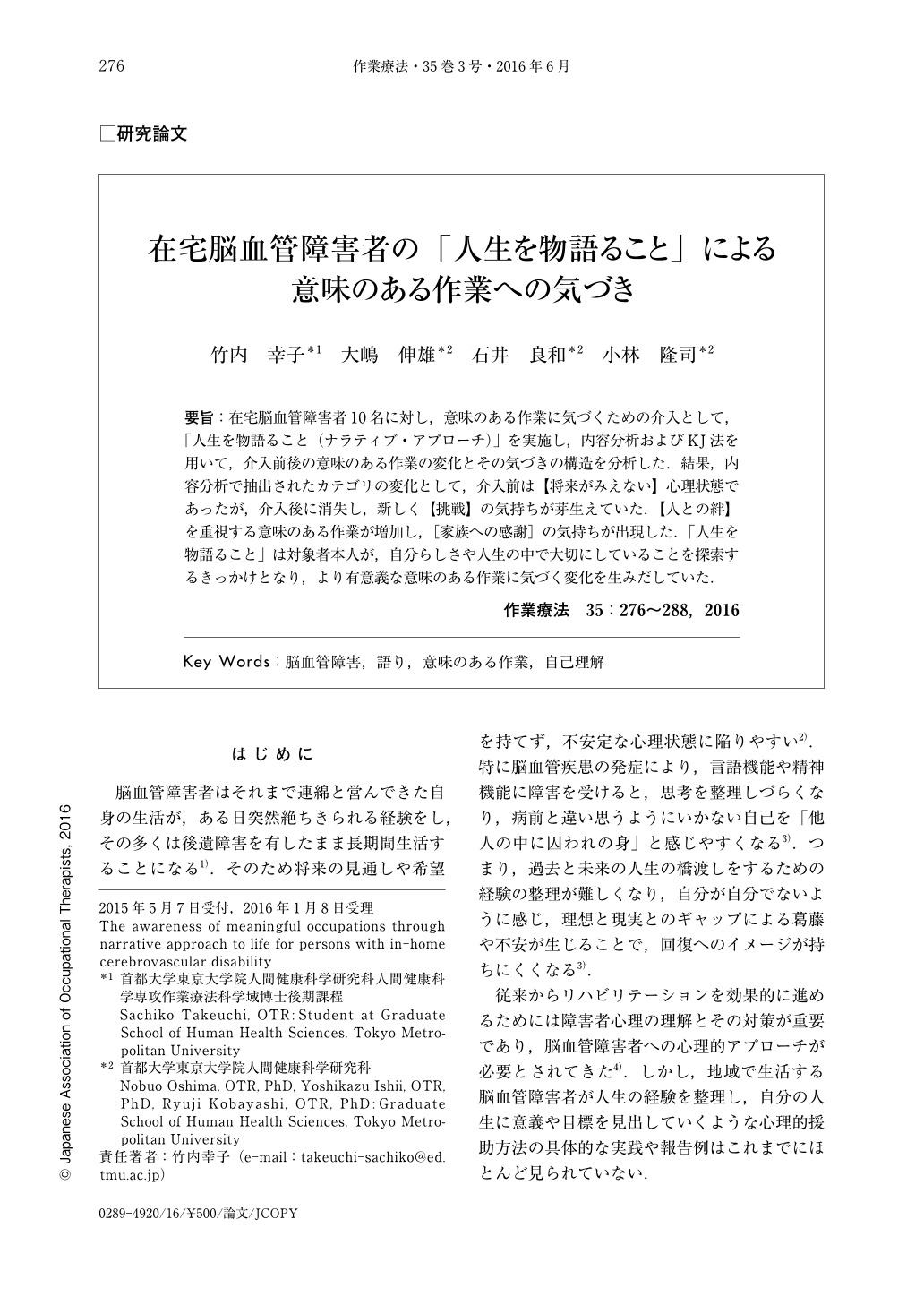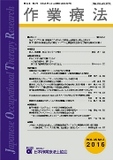Japanese
English
- 販売していません
- Abstract 文献概要
- 1ページ目 Look Inside
- 参考文献 Reference
- サイト内被引用 Cited by
要旨:在宅脳血管障害者10名に対し,意味のある作業に気づくための介入として,「人生を物語ること(ナラティブ・アプローチ)」を実施し,内容分析およびKJ法を用いて,介入前後の意味のある作業の変化とその気づきの構造を分析した.結果,内容分析で抽出されたカテゴリの変化として,介入前は【将来がみえない】心理状態であったが,介入後に消失し,新しく【挑戦】の気持ちが芽生えていた.【人との絆】を重視する意味のある作業が増加し,[家族への感謝]の気持ちが出現した.「人生を物語ること」は対象者本人が,自分らしさや人生の中で大切にしていることを探索するきっかけとなり,より有意義な意味のある作業に気づく変化を生みだしていた.
Psychological intervention for persons with cerebrovascular disability living at home is needed in order to help them live a meaningful life with more valuable occupations. However, for such cases, there are few studies on psychological intervention. To verify the efficacy of a narrative approach to psychological intervention, 10 persons with cerebrovascular disabilities were interviewed about their life stories at home through narrative approach. The meaningful occupations which emerged were analyzed in accordance with content analysis, and the KJ method for structuring awareness. The results showed that the total number of labels regarding awareness of meaningful occupations increased from 41 to 57 after the intervention. Subsequently, some of the subjects' meaningful occupations changed; they had no clear hope in the future and obsessed about illness prior to the intervention, but they began to focus on specific feasible activities and human relationships after the intervention. A narrative approach to psychological intervention brought about realistic and concrete cognitive processes, enhanced understanding, and made the subjects ambitious enough to act in exploring their own way of life. It also increased awareness of their feelings of gratitude to family, to others and to life itself. This study suggests that the narrative approach to psychological intervention leads to more meaningful occupations through enhancing awareness of one's own life.

Copyright © 2016, Japanese Association of Occupational Therapists. All rights reserved.


